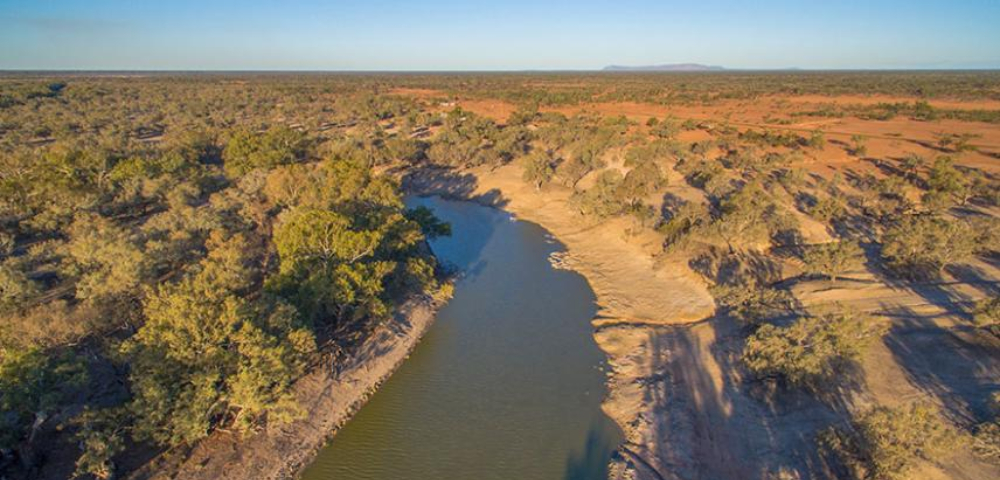
Experts find mass fish kills in the Darling-Baaka River due to ‘unenforced’ environmental laws

By ABHA HAVAL
The Darling-Baaka River has witnessed multiple instances of mass fish deaths in recent months, placing the region in a near-permanent state of environmental catastrophe. Now a new report has argued that the looming environmental crisis is due to the negligence of the NSW Water Department which failed to enforce “existing legal environmental protections in water laws” in spite of a raft of recommendations from the NSW Independent Commission Against Corruption (ICAC) in 2020.
A report by the Office of Chief Scientist and Engineer (OCSE), released last week, reviewed water management at the Darling-Baaka River and found that degradation of the river ecosystem caused mass fish deaths, proving ICAC’s review to be relevant to the recent incidents.
The report released by ICAC had suggested that irrigators were given “favourable treatments” for at least a decade. It outlined specific failures in administrative arrangements regarding water regulation and compliance. This failures stemmed from “chronic underfunding, organisational dysfunction, and a lack of commitment to compliance.”
An investigation in the “complaints of corruption in the management of water in NSW and systematic non-compliance with the Water Management Act (WMA) 2000” examined several allegations made in regards to the Murray-Darling Basin. It was determined that evidence regarding certain approaches taken by the NSW government involving water management over the last decade were inconsistent with the “objectives, principles, and duties of the WMA 2000.”
Greens MP and spokesperson for Water, Cate Faehrmann has called for an overhaul of the NSW Water Department over the mass fish kills.
“These terrible fish kills, off the back of the carnage we saw in 2018/19, are clearly a manifestation of the overall degradation of the broader river ecosystem resulting from decades of wilful mismanagement of water in NSW.”
“The Chief Scientist’s release of his findings and recommendations makes for a grim reading. The NSW Water Minister must look at what changes are needed within her water department to ensure her river health is prioritised,” she said.
“The NSW government’s response to the declining health of the Darling-Baaka River system has been woeful for years.”
Water quality testing reveals river degradation
In the water quality testing conducted last month by the Murray-Darling Basin Authority, the key issues identified were the algae blooms and low dissolved oxygen across most parts of the Murray-Darling Basin in NSW.
The Chief Scientist’s report clearly states, “mass fish deaths are symptomatic of degradation of the broader river ecosystem over many years. Changes to flow regime and fish passage from water infrastructure and altered water use in the northern basin are likely key factors in decreasing water quality and the decline of native species.”
Water spokesperson for Nature Conservation Council (NCC) NSW, Mel Gray told City Hub that the Menindee fish kills along with other mass fish deaths could have been avoided with better management of the rivers.
“We do have strong laws in NSW to make sure the river is looked after before water is pumped out, but these laws are useless if they’re not put into practice,” she said.
“What happens now is that when water is allocated for irrigation, there is no assessment of the environmental impact that would have on the rivers and wetlands.”
“Water NSW wields a lot of power over the rivers; its deeply concerning that their principal objective is to ‘turn a profit’ rather than ‘do no harm’.”
Climate change impact
With the bureau of Meteorology announcing the El Nino alert for the coming summer, the droughts are said to have a devastating impact on the environment. The OCSE report sends off a strong message to the NSW government to uphold the water laws and improve river management before the next drought.
Faehrmann emphasised better environmental protections for the rivers; “the first and foremost recommendation made by the Chief Scientist is that our water management laws actually be enforced by the government.”
“I’ve spoken with locals along the Darling-Baaka River this week who tell me that things are already looking grim at Menindee with stagnant water and some large cod dying again.”
“With increasing temperatures, and the likelihood of reduced flows going forward, this isn’t going to be the last time we see a catastrophic environmental event like this,” she said.
Gray believes it is critical that the allocation the waters from the Darling-Baaka River be addressed.
“The NSW government has an opportunity to avoid entire communities and ecosystems throughout inland NSW runing out of water in the next severe drought.”
“It is encouraging that NSW won’t be outright blocking the Commonwealth from buying more water from the many willing sellers in NSW.”
“The problem has been that powerful lobbyists representing large multinational corporations don’t care about these ecosystems. They are willing to destroy them for short term profit.”
“It is critical that the Minns government doesn’t entertain bizarre projects that only increase the value of corporate assets, and leave the rivers and native fish without the water they need,” she said.









